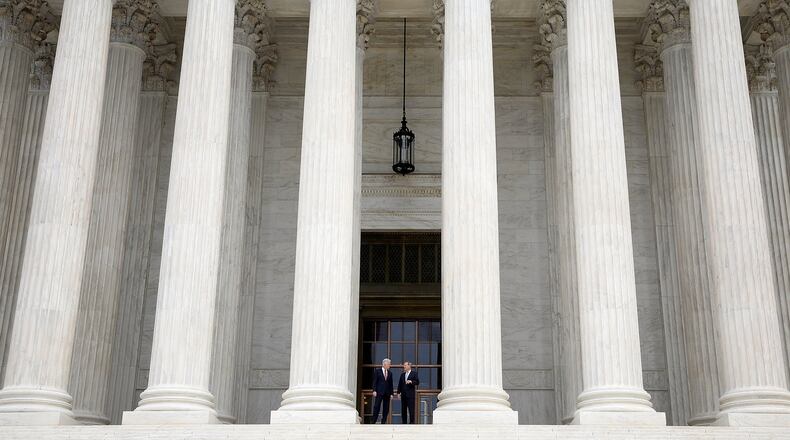Brian Davis, executive director of the Northeast Ohio Coalition for the Homeless, said the coalition brought the case because it disqualified many provisional voters or those who voted by mail.
“I think it’ll put additional hardship on people being able to have their vote counted in Ohio, which is unfortunate,” he said.
Subodh Chandra, an attorney who represented the coalition, called the decision “profoundly disappointing.”
“Secretary of State (Jon) Husted and Ohio's Republicans may now feel further emboldened to use trivial errors and omissions on paperwork to disenfranchise voters,” he said. “This ruling permits Husted to disenfranchise voters for writing their names in legible cursive rather than printing roman letters.”
But Husted said the decision not to take up the case “brings this case to a close and reaffirms that we have a fair and well-run system of elections in Ohio.”
The case stems from an October 2014 lawsuit brought by Northeast Ohio Coalition for the Homeless, Columbus Coalition for the Homeless, and the Ohio Democratic Party.
In June 2016, the U.S. District Court of the Southern District of Ohio found the voting laws disenfranchised qualified voters, but also found that it was appropriate for the Attorney General of the United States to bring such a claim.
Defendants appealed to the Sixth Circuit, which in September 2016 found partially in favor of the plaintiffs and partially in favor of Ohio.
Dan Tierney, a spokesman for Ohio Attorney General Mike DeWine said the denial "brings to an end over a decade of litigation against both Democrat and Republican officeholders in Ohio over challenging certain voting laws."
The Supreme Court denied a writ of certiorari, which means it decided to let the lower court decision stand.
About the Author
